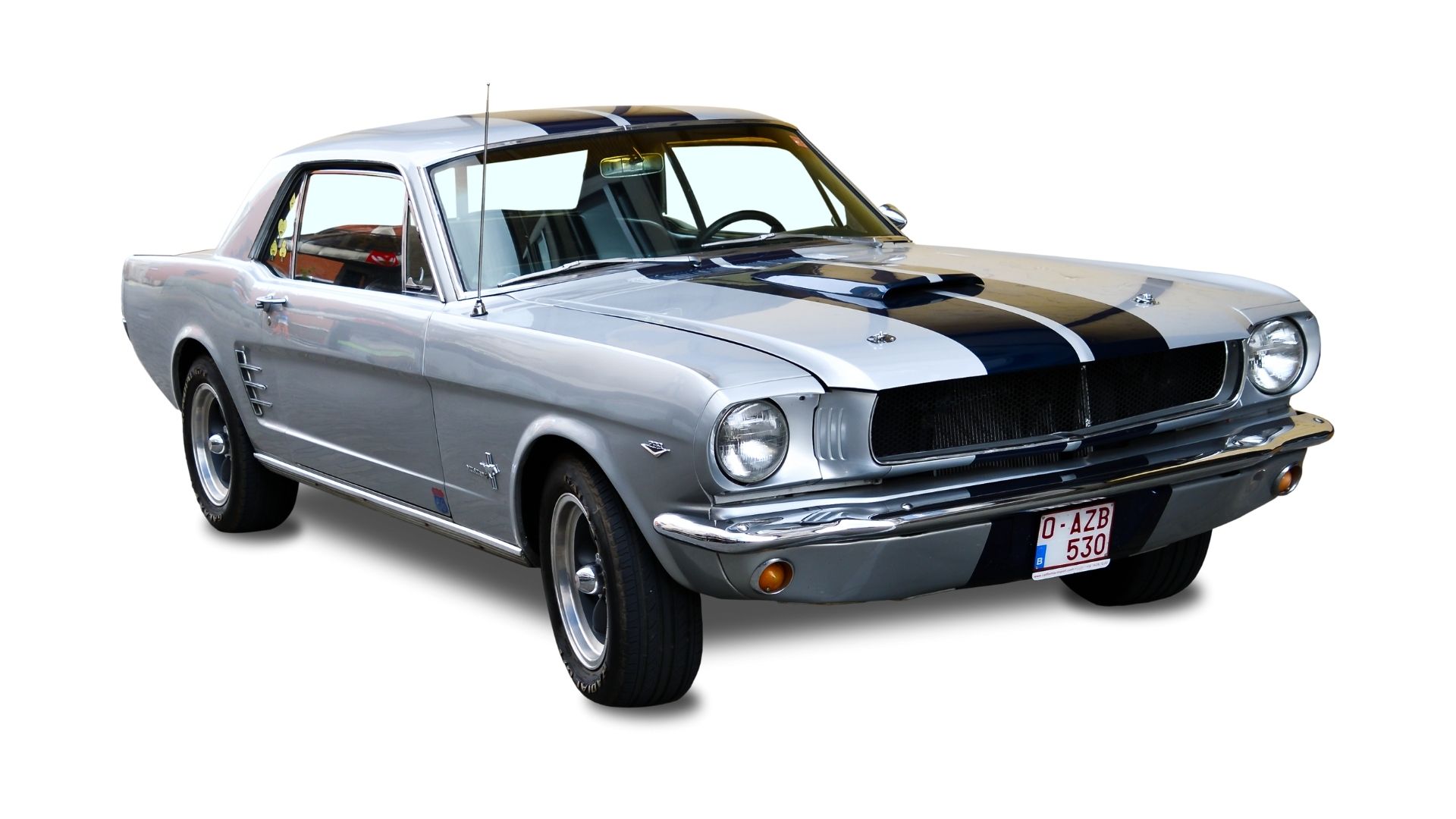Manufacturers build the Mustang to look, sound, and drive more aggressively, but if your Ford Mustang makes some unusual noises, you need to take action.
Ford Mustang Making Noise – Why?
A failing catalytic converter
Every time a vehicle’s catalytic converter fails, many things go wrong, including a loud rattle noise coming from underneath. This noise is unpleasant, and you should get your Mustang inspected right away.
In addition to a rattling noise, a failing catalytic converter will affect your engine’s power and efficiency. Your fuel consumption will increase, and the Mustang will have difficulty starting.
Once the catalytic converter sustains damage, it will clog the system and fail to filter out your Mustang’s emissions.
Old or bad battery
The Ford Mustang may also make loud noises once the battery ages or goes bad. When this happens, it causes the battery to drain from time to time. Your Mustang can also make noise if the connections to the battery posts are faulty. Experts recommend tightening all loose connections at the battery posts.
You may also use this time to clean the battery posts and remove the crude deposits. If the noise persists after replacing the old battery with a new one, you should consider inspecting the shorted diode causing the drain.
Low coolant
If the coolant inside your Mustang is low, the system will draw in air to fill the empty space. Consequently, this creates air pockets in your cooling system, causing a loud gurgling sound from underneath.
Often, low coolant is the result of leaks in the cooling system. It can come from cracked hoses, holes in the radiator, a leaky radiator cap, and a leaking water pump, among other causes.
Blown head gasket
When the head gasket blows, it causes exhaust emissions to enter the coolant system. Once these emissions enter the system, they cause a bubbling noise every time you start your Mustang.
In addition to the loud noises, a blown head gasket will make the engine inefficient since the Mustang is losing compression due to the leakages. The leading cause of a blown head gasket is the high temperature emitted by your vehicle’s engine due to insufficient coolant or coolant leaks.
Broken CV joint
One of the main reasons your Mustang makes a strange popping noise is due to broken Constant Velocity (CV). These are the joints that connect to your Mustang’s steering system. They connect to the axle to allow it the flexibility it requires to keep the wheels and suspension moving.
Once a CV joint breaks or damages, the axle will become inflexible and cause a rampant popping and clicking noise every time the wheels turn.
Different Mustang Noises and Troubleshooting Tips
Mustang making a ticking noise
Mustang makes a ticking noise because of worn-out valve lash adjusters and lifters.
Ticking noise when idle
If your Ford Mustang is making a ticking sound while idle, you may be dealing with worn-out or loose valve lash adjusters.
While some valve lashes are self-adjusting, others need manual adjusting regularly. Refer to your Mustang’s maintenance schedule to confirm.
If your valve lash adjusters are loose, you will hear a loud ticking noise coming from the hood. You’ll need to adjust the tension on the rocker arms if it is not automatic.
Ticking noise when accelerating
An accelerating Ford Mustang makes a ticking sound due to bad or worn-out lifters. Acceleration increases, the ticking sound, and vice versa.
The best way to fix ticking noise is by replacing the bad or worn-out lifter with a new one. It is a complicated task involving taking the engine apart. Therefore, let a mechanic do it.
Mustang making a rattling noise
If you hear a rattling or hammering noise coming from your Mustang, it may be due to combustion problems such as spark knock, pre-ignition, or detonation.
Combustion problems need immediate diagnosing before they damage the engine pistons. They usually occur when the Ford Mustang is accelerating or when the engine is under load.
When you hear a rattling noise, it means your Mustang has an abnormal ignition.
The best way to fix this problem is by using higher octane gasoline, decarbonizing the combustion chambers, or performing ignition retardation so that the sparks ignite after Top Dead Center (TDC).
Mustang making a squealing noise
If your Ford Mustang is making a squealing noise, it could be a problem with the serpentine belt.
The belt could be worn-out, or the tensioner could be coming loose every day. Since the serpentine belt controls all engine components, including the alternator, power steering, cooling fan, and water pump, you should have it inspected as soon as possible.
If the serpentine belt is loose, it means the alternator may charge your Mustang’s battery properly, and thus, the other engine components won’t function efficiently.
The best way to fix this problem is by tightening the serpentine belt.
On the other hand, if the serpentine belt is worn-out or damaged, replacing it with a new one is better.
Fortunately, a serpentine isn’t costly compared to other components. A professional mechanic will charge you about $120 to remove the worn-out belt and replace it with the new one.
If you choose to replace it independently, ensure you understand the procedure. Driving with an improperly installed serpentine belt is just as risky as driving without one.
Mustang making a whining noise
A whining noise coming from your Ford Mustang is due to an issue with the engine compartment.
If the Mustang is making a whining noise while accelerating, it could be a bad alternator, damaged water pump, or an issue with the power steering system.
If you hear the whining noise every time the vehicle starts, it is due to a bad serpentine belt, noise from the radio, a bad torque converter, or a misaligned starter.
The best way to correct this problem is to determine the conditions you hear the noise, let a professional mechanic diagnose the issue, and recommend the most suitable solution.
Mustang making a clicking noise
If your Mustang is making a clicking noise and won’t start, it could be a dead starter, bad battery cables, or poor battery post connections.
You can diagnose this problem by checking the battery cables’ cleanliness or whether the starter draws more power than the vehicle requires.
The best way to fix these problems is by cleaning the battery cables using a spray-on battery cleaner. If the battery cables are clean and the battery is in good condition, the problem is likely coming from the starter. In this case, consider replacing the faulty starter with a new one.
If your Mustang is making a clicking noise in the dash, the problem is likely coming from one of your blend door actuators for the air conditioning system.
When one of these actuators breaks, it produces a clicking noise every time it spins. You can correct this problem by replacing the broken actuator.
Clicking noise when turning
The Mustang makes a clicking noise when turning due to worn-out shocks. If you notice fluid coming out of the front shocks, they’re likely damaged and need replacing.
Blown shocks will make your Mustang feel bouncy every time you make a turn. Hire a professional mechanic to inspect your vehicle and make the necessary repairs.
Mustang making a whistling noise
If you hear a whistling noise coming from your engine, you may have a leak.
This leak may be in the vacuum line or coolant system. If the coolant is leaking, your Mustang will start overheating.
On the other hand, if the leak is in the vacuum line, it may affect the Mustang’s overall drivability and fuel economy. You need to take your Mustang to a mechanic before the problem escalates.
Mustang making a popping noise
Mustang makes a popping noise because of a damaged CV joint, loose hubcaps, faulty catalytic converter, irregularly shaped tires, clogged fuel filter, bad struts, or loose drive belt.
Solving some of these problems is simple and affordable. However, fixing some components, such as the catalytic converter, is expensive and requires the skills and experience of a mechanic.
Mustang making a grinding noise
The engine of a Ford Mustang usually makes a grinding noise due to worn-out bearings. You may hear the noise while driving or idling.
On the other hand, if you hear a grinding noise every time you apply the brakes, it means the brake pads are worn-out. A mechanic can fix this problem by replacing the worn-out bearings or brake pads with new ones.
Mustang making a humming noise
The most common causes of humming noise from a Ford Mustang are uneven tire wire, tires with large tread blocks, and bad wheel bearing.
The best way to eliminate the humming noise is by replacing the bad wheel bearings with new ones. We recommend getting a professional mechanic for the job.
Mustang making knocking noise
If your Mustang is making a knocking noise, you need to act quickly. This problem usually occurs when the fuel and air mixture in a specific cylinder simultaneously ignite at multiple points.
It leads to increased temperature and pressure, and it can easily cause cylinder failure if not addressed immediately. You can fix this minor problem by replacing damaged vacuum lines with new ones.

